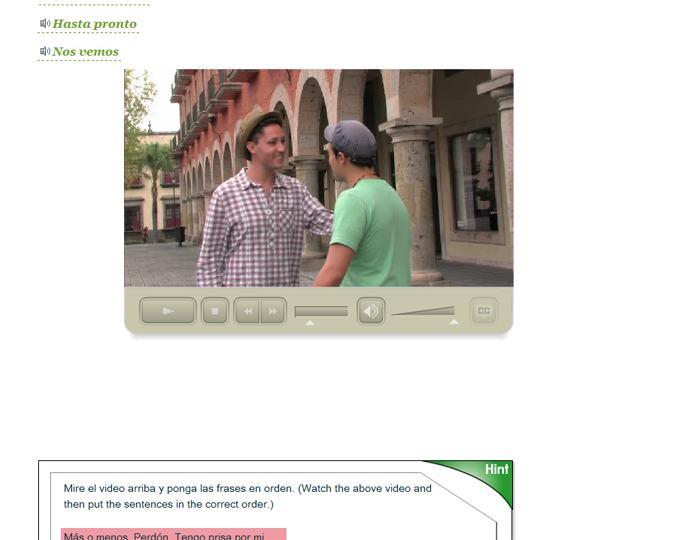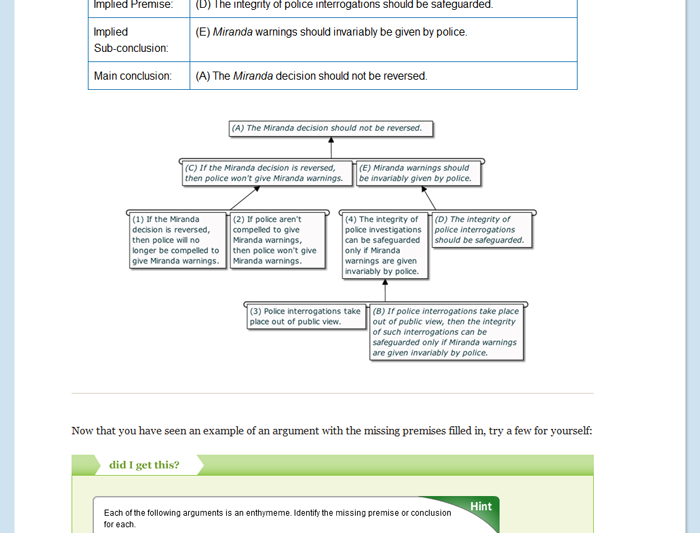An introduction to causal and statistical reasoning, this course is meant for students interested in critical thinking skills for daily life, students who will take a few statistics courses in service of a related field of study, and/or students interested in the foundations of quantitative causal models: called Bayes Networks.
Learn about Open & Free OLI courses by visiting the “Open & Free features” tab below.
Causal and Statistical Reasoning — Open & Free
- Description
- What students will learn
- Learning objectives by module
- Course outline
- Other course details
- System requirements
- Open & Free features
Description
This course provides an introduction to causal and statistical reasoning. After taking this course, students will be better prepared to make rational decisions about their own lives and about matters of social policy. They will be able to assess critically—even if informally—claims that they encounter during discussions or when considering a news article or report. A variety of materials are presented, including Case Studies where students are given the opportunity to examine a causal claim, and the Causality Lab, a virtual environment to simulate the science of causal discovery. Students have frequent opportunities to check their understanding and practice their skills.
This course is meant to serve students in several situations. One, it is meant for students who will only take one such research methods course, and are interested in gaining basic skills that will help them to think critically about claims they come across in their daily lives, such as through a news article. Two, it is meant for students who will take a few statistics courses in service of a related field of study. Three, it is meant for students interested in the foundations of quantitative causal models: called Bayes Networks.
In-Depth Description
Topics Covered:
Causation, association and independence, causation to association, association to causation: problems, association to causation: strategies
Open & Free Version
This Open & Free Course provides you with access to an online course comparable to a full semester course on Causal and Statistical Reasoning taught at Carnegie Mellon University. Your access includes the complete online course including all expository text, simulations, case studies, comprehension tests, computer tutors, and the Causality Lab.
At Carnegie Mellon, this online course is taught in combination with instructor-led discussion sections. The Open & Free Causal and Statistical Reasoning course does NOT include access to the end-of-module graded exams or to the course instructor. No credit is awarded for completing the Open & Free Causal and Statistical Reasoning course.
What students will learn
Students who take this course will be:
- better prepared to make rational decisions about their own lives and about matters of social policy.
- able to critically assess claims that they encounter during discussions or when considering a news article or report.
Topics covered consist of:
- Causation.
- Association and independence.
- Causation to association.
- Association to causation: problems and strategies.
Learning objectives by module
Coming soon.
Course outline
UNIT 1: Causation
Module 1: Causation: Preliminaries
Module 2: Causation Among Variables
Module 3: Indeterministic Causation
Module 4: Causal Graphs
Module 5: Interventions
UNIT 2: Association and Independence
Module 6: Relative Frequency
Module 7: Conditional Relative Frequency
Module 8: Independence and Association
Module 9: Conditional Independence
UNIT 3: Causation to Association
Module 10: Causation vs. Association
Module 11: Causation to Unconditional Association
Module 12: Causation to Conditional Association
Module 13: D-separation
UNIT 4: Association to Causation: Problems
Module 14: Problems with Causal Discovery
Module 15: Confounding (Qualitatively)
UNIT 5: Association to Causation: Strategies
Module 16: Experiments
UNIT 6: Appendix
Module 17: Case Study Repository
Module 18: Causality Lab Tutorials
Module 19: Set Builder Manual
Module 20: Glossary
Other course details
System requirements
OLI system requirements, regardless of course:
- internet access
- an operating system that supports the latest browser update
- the latest browser update (Chrome recommended; Firefox, Safari supported; Edge and Internet Explorer are supported but not recommended)
- pop-ups enabled
- cookies enabled
Some courses include exercises with exceptions to these requirements, such as technology that cannot be used on mobile devices.
This course’s system requirements:
Open & Free features
Open & Free Courses
- Open & Free OLI courses enable independent learners to study a subject on their own terms, at their leisure. Courses are:
- Self-guided.
- Self-paced.
- Self-supported.
- Open & Free courses include only the learning materials:
- No teacher.
- No tests.
- No college credit.
- No certificate of completion.
- *If your teacher gave you a Course Key, do not use an Open & Free course because your teacher will never see your work.






